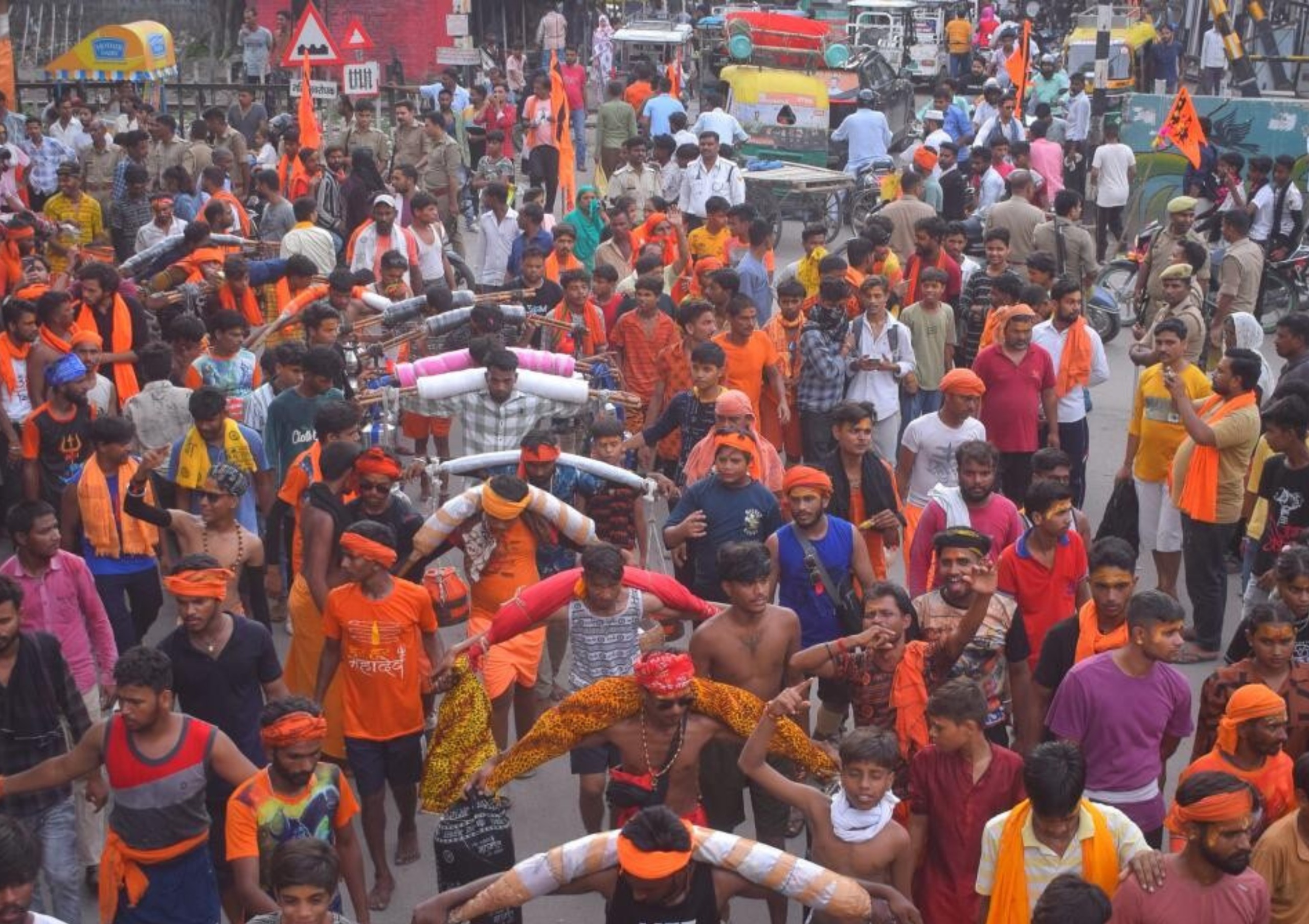
The Supreme Court on Tuesday declined to stay the controversial QR code directive requiring eateries along the Kanwar Yatra route in Uttar Pradesh and Uttarakhand to display identification details, while mandating that all establishments comply with statutory licensing requirements.
A bench comprising Justices M.M. Sundresh and N. Kotiswar Singh avoided delving into the contentious aspects of the directive, noting that Tuesday marked the final day of the annual pilgrimage. The court focused instead on ensuring compliance with existing food safety regulations.
"We are told that today is the last day of the yatra. Therefore, at this stage we would only pass an order that all the respective hotel owners shall comply with the mandate of displaying the licence and the registration certificate as per the statutory requirements," the bench observed.
The petition, filed by academician Apoorvanand Jha and others, challenged the UP government's QR code mandate as discriminatory. Senior advocate Abhishek Singhvi, representing the petitioners, argued that the directive amounted to "the most divisive initiative" designed to ostracise minorities during the religious pilgrimage.
"This is to ostracise people during the yatra, as if these people are untouchables. Will my surname ensure that kanwariyas receive good quality food?" Singhvi contended, warning that such measures sow "seeds of divisiveness" that can lead to mob violence against certain communities.
The petitioners highlighted how the QR codes reveal owners' names and identities, effectively achieving the same discriminatory profiling that was previously stayed by the court in 2024. They argued this breached the privacy rights of restaurant and dhaba owners.
Senior advocate Mukul Rohatgi, defending the Uttar Pradesh government, justified the directive under Food Safety and Standards Authority of India regulations. He emphasized religious sentiments, stating, "There are people in this country who will not eat in their brother's house if meat is cooked."
Justice Sundresh supported the consumer choice argument, observing that pilgrims should have the right to know whether establishments serve exclusively vegetarian food. "If one hotel was earlier serving non-vegetarian, and for the purpose of better business they serve only vegetarian during the yatra, it will be an issue for the consideration of the consumer. The choice is of the consumer. Consumer is the king," he remarked.
The Kanwar Yatra sees millions of devotees carrying holy Ganga water to perform jalabhishek of Shivlings during the Hindu month of Shravan. Many participants observe strict dietary restrictions, avoiding not only meat but also onion and garlic during this period.
The court's reluctance to examine the petition thoroughly, citing the yatra's conclusion, leaves several constitutional questions unresolved. While establishments must display proper licenses, the broader implications of mandating owner identification through QR codes remain legally ambiguous.
This decision reflects the ongoing tension between religious accommodation and constitutional principles of equality and privacy. As the pilgrimage concludes, the debate over balancing consumer rights with anti-discrimination safeguards continues to challenge India's secular framework.
The Supreme Court's measured approach prioritises immediate compliance with food safety standards while sidestepping the more contentious constitutional issues that may resurface in future religious gatherings.